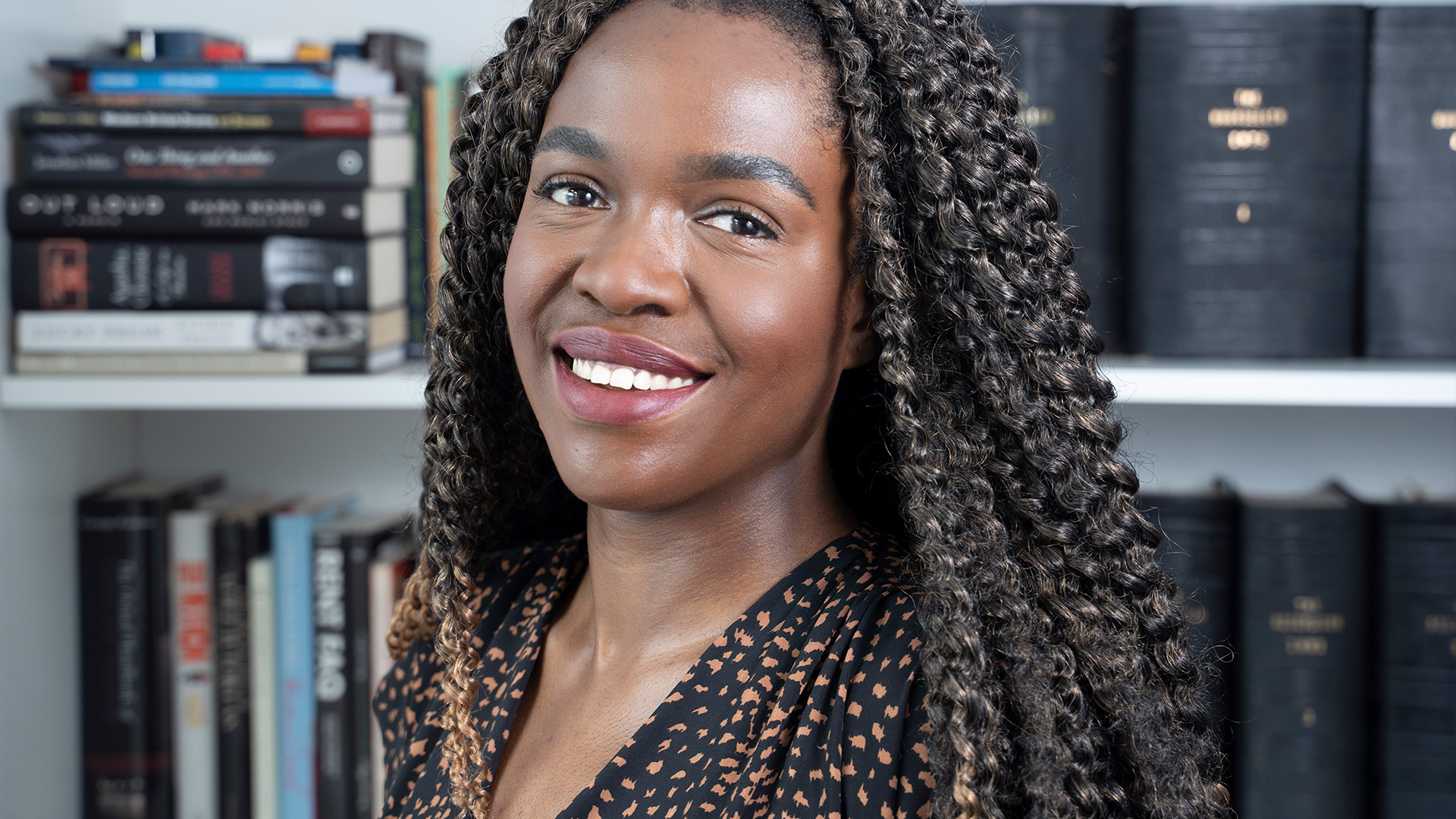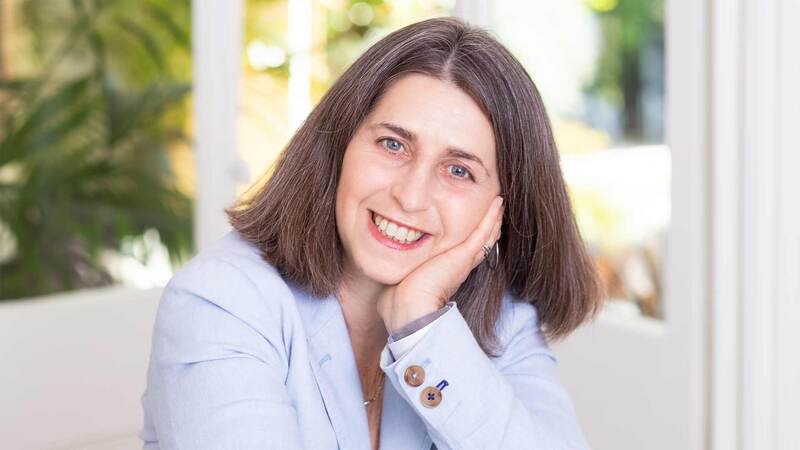You are viewing your 1 free article this month. Login to read more articles.
Breadth of titles by Black authors increases but big names still lead the way
Analysis of the bestselling 1,000 authors in the UK in 2021 shows that, while more Black authors feature and with a broader range of titles, it remains difficult for Black creatives without a platform to break through.
The top-selling 1,000 authors for the non-lockdown period of 2021 earned a combined £737.9m, up 2.8% against the same weeks for 2019. The Bookseller identified 30 Black authors among them, who brought in £13.4m between them—1.8% of the total. Compared to 2019’s 22 Black authors in the top 1,000, on a combined £11m, this was up, but only marginally. However, Michelle Obama’s memoir, Becoming, brought in £2.1m alone in 2019, a far bigger chunk than any author or title did individually in 2021.
As Nielsen’s top 1,000 authors is by volume, some notable high-earning Black authors fall just outside the remit. Candice Carty-Williams, Michael Holding and N K Jemisin technically sit outside of Nielsen’s Top 1,000 author ranking of the year, as measured by volume, but are included in the chart, ranked by value. Holding’s Why We Kneel, How We Rise brought in £278,000 in 2021, boosting his total to £289,000 for the year. Carty-Williams’ Queenie, still selling strongly a year on from its paperback publication, joined Empress & Aniya and her Quick Reads title Notting Hill Carnival: A West Side Story to earn a total of £141,643. N K Jemisin brought in £193,948 across 29 separate titles.
Mr Michelle Obama tops the earnings chart for 2021, across both his 2020-published autobiography, A Promised Land, and last year’s Renegades, written with Bruce Springsteen, which brought in nearly £900,000 in the final two months of the year—helped by its £35 r.r.p. However, in volume terms, Marcus Rashford and Carl Anka were streets ahead, with You Are a Champion shifting nearly 150,000 copies more than the former president’s volume. The duo’s inspirational title was a huge hit across summer 2021, securing a four-week streak in the Children’s top spot upon publication in late May. After the England player missed a penalty in the Wembley final of Euro 2020, sales soared 74% week on week to their highest point, as book-buyers responded to the racist threats he received online. You Are a Champion would go on to become the 16th-bestselling book of the year, boosting its sub-category, Young Adult General Interest & Leisure, by 58% in value against the same period in 2019. Rashford and Anka’s guide solely accounted for 38% of the sub-category’s total value.
The million club
In 2021, four Black authors brought in over £1m, with Will Smith joining Rashford, (Mr) Obama and Brit Bennett at the top; only Michelle Obama and Rachel Renée Russell did so in 2019. However, the top-selling 100 authors across the TCM as a whole only included two Black writers—Obama and Rashford, in 70th and 92nd respectively—and there were just six in the top-earning 250, with children’s fiction legend Malorie Blackman falling just outside that.
During the Black Lives Matter protests around the world in summer 2020, sales of Black-authored titles and anti-racism guides soared up the charts. In June 2020, Reni Eddo-Lodge’s Why I’m No Longer Talking to White People About Race, published in paperback two years previously, became the first Black British-authored title to top the Official UK Top 50 in the Nielsen BookScan era. Of course, because of that other big society-shifting event that happened that year, BookScan was unable to report sales figures for the full 52 weeks. Yet, even without the 17 lockdown weeks of 2020, Eddo-Lodge’s value stood at £1.33m (with 184,827 copies of Why I’m No Longer Talking to White People About Race sold). Aside from the US’ first Black president, no Black author has bettered that value in the 42 available weeks of 2021.
We should note that Eddo-Lodge’s non-fiction paperback was selling at an a.s.p. of £7.17 in 2020, whereas Rashford and Anka’s You Are a Champion was changing hands for an average of £5.64 in 2021—notwithstanding the substantial number of copies donated for free to those from underprivileged backgrounds. Hence, You Are a Champion sold nearly 36,000 copies more last year than Why I’m No Longer Talking to White People About Race throughout 2020, yet Eddo-Lodge was nearly £90,000 up.
Bernardine Evaristo was the highest-earning author to appear in both 2021 and 2019’s chart—the literary fiction author demonstrated remarkable consistency, earning £819,000 and £907,000 in those two years. While, of course, 2019 was the year she won the Booker Prize, Girl, Woman, Other’s paperback sales absolutely took off during the first lockdown in spring 2020, and shifted more than 80,000 copies in the available weeks of 2021 alone, worth nearly £540,000. Her hardback non-fiction title Manifesto joined it in the charts last autumn, earning £223,000.
The insiders’ perspective
Leodora Darlington – commissioning editor
The right publishers and editors don’t look at publishing Black authors as an opportunistic, trend-driven endeavour, but more a (in some cases, very overdue) long-term investment. That’s important when acquiring an author: it’s not just thinking about one or two books over the next two years, but the longevity of their career and what the next books after the ones on contract might look like. There has been a tendency in some pockets of publishing to pick up a book by a Black or otherwise underrepresented writer and drop the author quite quickly if the book doesn’t work. I don’t know if enough questions—did we position this correctly? Did we give this the best editorial steer? Was our marketing and publicity plan right?—are always asked before making that decision.
I would be curious to know what the average revenue per title is like for Black authors compared to other writers. It’s great to see that total revenue is up year-on-year, and if we exclude the Michelle Obama title, average revenue per author is also marginally up. I hope publishers are continuing to invest in Black authors meaningfully, and this seems to be a positive early signal.
Natalie Jerome – agent, Curtis Brown
For me what the data reaffirms is how much more work we need to do to diversify publishing and provide greater depth and breadth. The books by Black authors that are commercially successful right now are by household names that cross over, appealing to white and Black readers, or are from authors who have built their audience over time, such as Brit Bennett, Malorie Blackman and Bernardine Evaristo. Another example would be Sir Lenny Henry, whose The Boy with Wings (Macmillan Children’s Books) was the second-bestselling début middle-grade title of last year. It suggests that we are still heavily weighted towards super high-profile Black authors achieving the retail support and visibility that drives commercial success, and we all know commercial success is the true barometer of systemic change.
It’s interesting that of the top seven Black authors, only two write literary fiction, especially given the emphasis publishing has traditionally placed on this area for Black authors, and especially over-indexing in writing about trauma. That’s a good sign; I hope agents, commissioning editors and retailers take note.
Crystal Mahey-Morgan – Founder & c.e.o., OWN IT!
I firmly believe any growth we see in sales for Black authors needs to be taken with a pinch of salt. We shouldn’t get too comfortable in thinking that this is as a result of publishing being more progressive.
Growth in sales for Black authors can be misleading when they are predominantly driven by big names such as Michelle Obama and Will Smith. We need to see sustained growth over a number of years, otherwise we fall back into the trap of Black authors being published as part of a marketing trend instead of them just being seen as writers. As an agent I see this reflected a lot when I submit something by a Black author; it tends to be more favoured if it is somehow issue-based and there is often a desire from publishers to editorially make it lean than way. Even when things are not “issue-based” books, publicity and marketing campaigns inevitably end up being pinned around “diversity”, which can limit the writer’s potential audience and, as a result, sales. This, of course, then impacts the profit and loss (P&L) for that author’s next book or, worse still, the P&Ls of other Black writers, as looking at sales of “comparable” titles are still a huge part of how they are created.
Joelle Owusu – commissioning editor, Coronet
I welcome the positive results, but this was expected after Black Lives Matter swept through the industry and highlighted both staff and author injustices. With that said, the growth is still minute. What is interesting is that the top names are already well-known figures and US buy-ins, with no new homegrown talent topping the list just yet. Speaking from a personal capacity, I find that quite disappointing, given the number of talented authors currently doing amazing things.
Was some of this performative? I believe some was, but not all of it. I guess we won’t know if this was just a trend until we see the 2022 results.
I’ve said it many times, but true change will come when Black writers are not only able to write about whatever they want but are also able to be kept on as “brand authors” who get to experiment with their writing and build a following over years. Publishers need to put proper support (time and money) behind Black authors to avoid this “one and done” performative book approach that seems to be creeping in across the publishing industry at all levels.





















